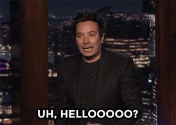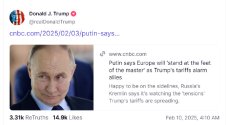US Envoy Kellogg pauses Ukraine peace plan to hold talks with Nato allies
Donald Trump’s administration has paused its peace plan for Ukraine to give Europe a seat at the negotiating table, The Telegraph can disclose.
The US president’s envoy for Ukraine has promised to hold individual talks with Nato allies before finalising the long-awaited blueprint to end the war.
Gen Keith Kellogg said he would seek views on the shape of any peace deal and what governments could contribute to the process in recent talks with European diplomats.
He promised to hold those negotiations with “prime ministers and presidents” from the Nato alliance, in a move that will reassure those who fear being frozen out of the talks by Washington.
At the same time, Gen Kellogg said he would unveil elements of the peace plan at the Munich Security Conference in Germany this weekend.
The Telegraph understands that this will be an offer of continued military support for Kyiv in exchange for access to Ukraine’s rare earth resources.
It is understood that continued military support for Kyiv will be offered in exchange for access to Ukraine’s rare earth resources Credit: Anatolii Stepanov/Reuters
Europeans who held talks with Gen Kellogg were reassured that Washington wants to strengthen Ukraine’s hand in any future negotiations with Russia, sources familiar with the discussions said.
It had previously been reported that Mr Trump’s Ukraine envoy would present the entire blueprint at the international gathering in the Bavarian state capital, something he later denied.
The US president claimed that he would end the war between Ukraine and Russia, which has been raging for almost three years, 24 hours after he was inaugurated on Jan 20.
But that ambitious timetable slipped when Gen Kellogg was given 100 days to broker a peace deal after he was appointed as Mr Trump’s special representative for Ukraine.
It could yet further be delayed as the envoy schedules meetings with leaders from Nato’s 31 other member states.
There were also signs of disconnect between Mr Trump and his envoy, who was left unaware that the US president had scheduled talks with Volodymyr Zelensky, the Ukrainian president.
Gen Kellogg privately conceded that he had only found out about the meeting from a television news channel in a meeting with European officials.
It sparked fears that the envoy may not hold enough sway over Mr Trump or even the competence to broker a final deal.
The apparent delays in the peace talks came as Russia signalled that talks with the US had also stalled.
Moscow suggested it was yet to receive any offer that would convince it to come to the negotiating table.
Last weekend, Mr Trump said that he had held talks with Vladimir Putin and the Russian president “wants to see people stop dying”.
But in an interview with the New York Post, the US president refused to say when he had spoken to Putin.
In response, Mikhail Galuzin, Russia’s deputy foreign minister, said: “It is important that words be backed up by practical steps that take into account Russia’s legitimate interests, demonstrating a readiness to eradicate the root causes of the crisis and recognise the new realities.
“Concrete proposals have not yet been received.”
Last week, Dmitry Peskov, the Kremlin spokesman, said that talks with Mr Trump’s administration had intensified.
Moscow has previously demanded that Ukraine significantly shrink the size of its armed forces and promise not to join Nato and the European Union as the price for peace.
Mr Zelensky has refused to consider such options because they would leave his country open to another attack by Russian forces.
The pushback from Russia comes on the eve of a major week of diplomacy between the US and its European allies.
JD Vance, the US vice-president, will travel to Germany with Gen Kellogg, where they are expected to meet Mr Zelensky and other European leaders, including Ursula von der Leyen, the European Commission’s president.
Meanwhile, Nato will hold its first meeting of defence ministers since Pete Hegseth, who is sceptical of US aid to Ukraine, took over the Pentagon, in Brussels.
Britain will also chair for the first time a meeting of the so-called Ramstein group of more than 50 nations that support Ukraine.
Leadership of the Ukraine Defence Contact Group was handed over to John Healey, the Defence Secretary, after the Americans said the UK should be leading Nato’s efforts in Europe.






